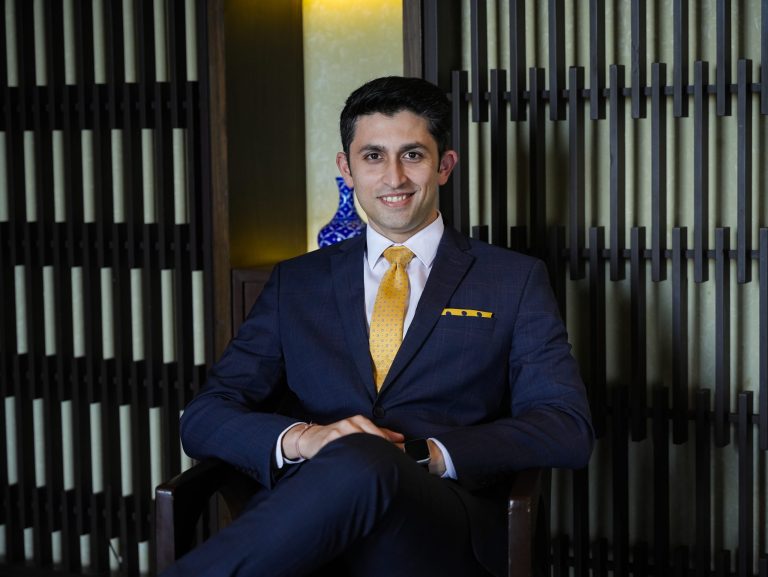Marriott International has recently announced a pivotal transition of six key properties in India from franchise to managed operations, marking a strategic move to bolster its operational capabilities and brand presence. This shift, affecting properties in prominent cities such as Hyderabad, Pune, Ahmedabad, Chennai, and Jaipur, aligns with Marriott’s vision of enhancing its footprint in both business and leisure markets across India.
In an exclusive interview with Asmita Mukherjee, Tarun Dutta, Cluster Director of Sales & Marketing, Marriott International, sheds light on how this transition will leverage Marriott’s robust global sales network and the popular Marriott Bonvoy loyalty program to capture a broader customer base.
Could you elaborate on the strategic rationale behind transitioning these six properties from franchise to managed entities? How does this align with Marriott’s broader business objectives in India?
This transition aligns with Marriott’s broader business objectives in India by expanding its managed portfolio in strategic markets, allowing for greater operational excellence and reinforcing its brand presence. It also enables Marriott to attain operational excellence, especially in urban cities, while further diversifying into emerging leisure destinations.
The current Marriott-managed portfolio, owned by SAMHI Hotels, includes 11 properties. Transitioning these six additional properties from franchise to managed hotels strengthens the cluster by fostering better synergies across various disciplines, thereby improving operational excellence. Additionally, access to over 210 million Marriott Bonvoy members globally provides a loyal customer base, driving consistent and value led business opportunities.
These properties are located in key business cities such as Hyderabad, Pune, Ahmedabad and Chennai, where Marriott already manages hotels, enhancing the support within these urban markets. Additionally, the inclusion of a leisure destination such as Jaipur adds to Marriott’s portfolio, with a balanced mix of business and leisure offerings.
How will Marriott’s direct management impact the guest experience at these properties, particularly in terms of service quality, brand consistency, and adherence to Marriott’s global standards?
Properties transitioning from franchise to managed will benefit from Marriott’s global expertise, sales, and distribution channels. Additionally, the properties will undergo upgrades to meet Marriott’s high standards of quality and service. This ensures that guests enjoy a seamless, consistent, and memorable stay, with elevated comfort and innovation, under Marriott’s renowned hospitality standards.
Guests at these six hotels will enjoy enhanced benefits and offerings under Marriott Bonvoy, Marriott International’s award-winning travel program and marketplace, that gives members access to transformative, eye-opening experiences around the corner and across the globe. Marriott Bonvoy’s portfolio of more than 30 extraordinary hotel brands offers renowned hospitality in the most memorable destinations in the world.
What are the key operational synergies that Marriott anticipates leveraging through its management of these hotels to enhance performance and drive efficiencies?
Marriott expects to leverage several key operational synergies to enhance performance and drive efficiencies across these hotels:
• Brand Standards Implementation and Audits: Ensuring consistency through strict implementation of Marriott’s brand standards and regular audits to maintain quality across all properties.
• Revenue Shared Services: Utilizing Marriott’s revenue shared services to optimize financial performance and drive profitability.
• Enhanced Sales Support: With a focused approach, Marriott’s global and national sales teams will provide enhanced support to drive occupancy and revenue growth.
• Digital Optimization and Market Campaigns: Marriott’s digital services will optimize the hotels’ digital presence and distribution channels, while participation in Marriott-led market campaigns will further increase visibility and brand awareness in key markets.
How will Marriott’s global sales and distribution channels, along with access to the Bonvoy loyalty program, contribute to the revenue potential of these properties?
Marriott’s global sales and distribution channels provide these properties with a wider reach to diverse markets, maximizing visibility and increasing bookings. Access to the Marriott Bonvoy loyalty program, with over 210 million members globally, offers a consistent base of loyal customers. This drives increased occupancy and repeat business, elevating the revenue potential of these hotels through targeted marketing and member-exclusive offers.
With properties in business hubs like Chennai, Pune, and Hyderabad, what are your strategies to capitalize on the growing corporate and MICE segments in these regions?
With properties located in major business hubs like Chennai, Pune, and Hyderabad, Marriott plans to leverage its robust management capabilities and SAMHI Hospitality’s expertise to cater to the growing corporate and MICE (Meetings, Incentives, Conferences, and Exhibitions) segments. By enhancing workspaces, delivering seamless meeting services, and offering value-driven accommodation, the properties are positioned to meet the needs of business travelers and MICE organizers, increasing business potential from corporate clients.
How do you plan to capitalize on the Marriott Bonvoy program to drive guest loyalty, attract new customers, and enhance the overall value proposition of these hotels?
The Marriott Bonvoy program, known for providing personalized experiences, will be key in driving guest loyalty and attracting new customers. The program offers exclusive benefits such as bonus points, late checkout, and a guaranteed welcome gift at participating hotels. Platinum Elite members can enjoy room upgrades and lounge access. With the 48-Hour guarantee and ultimate reservation guarantee, guests have reliable booking options. Additionally, the Ambassador Service provides personalized assistance, creating a rewarding experience that strengthens guest relationships.
Could you share details on any planned property upgrades or renovations to align these hotels with Marriott’s international standards and enhance their competitive positioning?
The six hotels are undergoing upgrades to align with Marriott’s international operational standards. This includes enhancements in service quality, guest room design, and facility upgrades to provide a consistent, memorable experience for all guests. These renovations aim to boost the competitive positioning of the properties by meeting the expectations of global travelers and ensuring superior comfort and innovation.
As the Cluster Directors of Sales and Marketing, how are you tailoring your sales approach for each of these hotels based on their unique market dynamics and target customer segments?
The strategic transition to managed operations allows Marriott to better align sales and marketing approaches tailored to each hotel’s unique market dynamics. The Fairfield by Marriott brand is known for its comfortable, value-driven accommodation options, providing seamless workspaces and restful stays tailored for the ever-evolving global traveller. Complementing this, Four Points by Sheraton delivers functional guest rooms that strike a perfect balance between work and relaxation, enriched by its signature ‘Style via Comfort’ feature.
Marriott’s extensive global distribution network and loyalty program, Marriott Bonvoy will also provide enhanced visibility and diverse customer engagement, optimizing each hotel’s revenue potential based on local market demands and customer profiles.
What are your revenue and occupancy expectations for these hotels post-transition, and what strategies are in place to meet these goals and drive sustainable growth?
We are optimistic about driving higher occupancy rates and revenue growth for these hotels, leveraging the power of Marriott’s global and national sales along with strong distribution channels. Along with the loyalty base, the ongoing upgrades to align with Marriott’s high standards will likely attract both existing and new customers, enhancing the properties’ appeal. Marriott’s proven management capabilities are expected to optimize operations, providing sustainable growth and improved financial performance across these hotels.
How do you plan to expand the corporate and wedding sectors for these properties, and what trends do you foresee in these segments?
To expand the corporate and wedding sectors, we offer tailored packages that include upgraded meeting spaces, event planning, and specialized services.
In the wedding segment, Shaadi by Marriott focuses on personalized and destination weddings, offering intimate to luxury events with attractive deals. Marriott enhances the guest experience with diverse cuisine options, customized by top chefs. Décor and event planning are handled by Shaadi Specialists, ensuring seamless execution.
What challenges do you anticipate during this transition, and how are you turning them into opportunities for growth and market penetration?
Unlearning old practices and adapting to new systems creates an opportunity for growth as it enables hotel teams to acquire new skills, which will ultimately improve operational efficiency and service delivery.
Managing multiple properties in the same micro-market might allows us to diversify our offerings and align pricing strategies across Indian cities. This, in turn, enhances the value we deliver to customers by catering to a broader range of needs. The transition also opens up avenues for greater synergy among team members. By working collaboratively across properties, we can streamline operations and foster innovation, which strengthens overall performance.
Additionally, by being able to collectively meet larger client requirements while maintaining a unified guest experience, we not only reinforce our brand presence but also ensure that guests receive consistent, high-quality service across all properties.


